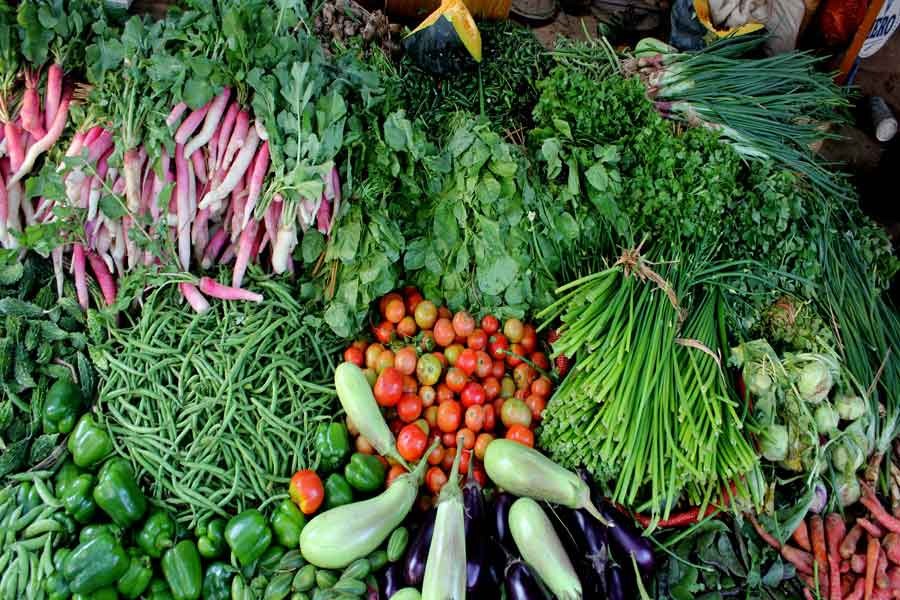Winter is now setting in. Vegetables associated with the cold season are coming to markets in plenty. There is a sufficient supply of vegetables from local business centres to retail and wholesale markets. Farmers are busy producing and marketing. But as usual, they have fallen hostage to middlemen of the wholesale market. Prices are increasing while changing hands.
Vegetables go to wholesalers from farmers. Thereafter, they reach retail markets. But price differentials are high. Prices become double when they reach wholesalers from farmers. Consumers have to buy in retail market at a price three times higher the level of farmers. Farmers are complaining that they are not getting fair prices and are incurring losses. But middlemen are reaping high profits.
Different vegetables are grown aplenty in Burichang upazila of Comilla. Retailers and wholesalers are deriving the benefit. Traders from Dhaka and Chittagong buy vegetables and take them by trucks. They get good margin while selling to retailers.
Narsingdi is well known for producing vegetables. About 40 per cent of Dhaka's vegetables are supplied from Narsingdi and adjoining areas where there has been a bumper harvest. Truckloads of vegetables are dispatched to various destinations. In Bogra, prices increase as vegetables change hands. Consumers in cities have to buy vegetables at higher prices.
In outlying areas of Jessore, cauliflower is selling at Tk 12/15 per piece. The same is selling at Tk30/35 per piece in Jessore town. In Hatirpool bazaar in Dhaka, it is sold at Tk35/40. Price differentials are same for other vegetables. Market monitoring agencies are silent about this. Middlemen are benefiting from price differentials. A large number of farmers are deprived of fair price. There is no application of rules in vegetable market.
There is one price in the morning while it is different in the afternoon. Shopkeepers are asking for prices according to their own wish. If supply increases, prices fall at a very slow pace. In Kawran bazaar, prices of cabbage and gourd are selling at Tk15/20 per piece. In Hatirpool bazaar, its price is Tk 35/40. Radish is selling at Tk30/35 a kg in Hatirpool but it is selling at Tk 7.0 in wholesale market. Gourd is selling at Tk 20 in the wholesale market but its retail price is Tk 60 in Hatirpool. The same product is sold at half the price at Khilgaon, Goran and Mugda.
Perishable goods cannot be monitored. Its price depends on demand and supply. The biggest wholesale market is at Satmile in Jessore. In this market, brinjal is selling at Tk18/20 per kg. Farmers come to this market from neighbouring areas with their crops. Price is several times higher only 10 miles from this place.
Farmers are of the view that the government should regulate wholesale and retail markets of vegetables so that both farmers and consumers can benefit from this. Businessmen say that transportation cost, rent for shops and other costs account for high price of vegetables. Although vegetable production was affected by floods, there is no shortage in overall production. Because of transportation cost, rent for shops, salary of staff, high price of electricity and water and toll collection account for high price of vegetables.
To reach Dhaka and Chittagong from Jessore (Satmile) lots of illegal payments have to be made. They have to pay to police and ferry ghats. Perishable vegetables get preference in clearing trucks on payment. One trader said that it costs Taka eight per kg to transport vegetables from Satmile to Chittagong. An amount of Tk 2,500 is to be paid in bribe per truck.
The writer is an economist and columnist.


